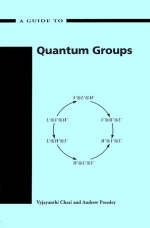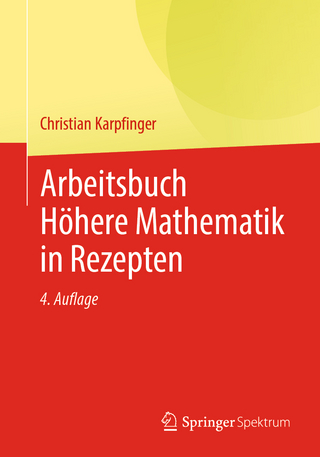
A Guide to Quantum Groups
Cambridge University Press (Verlag)
978-0-521-55884-6 (ISBN)
Since they first arose in the 1970s and early 1980s, quantum groups have proved to be of great interest to mathematicians and theoretical physicists. The theory of quantum groups is now well established as a fascinating chapter of representation theory, and has thrown new light on many different topics, notably low-dimensional topology and conformal field theory. The goal of this book is to give a comprehensive view of quantum groups and their applications. The authors build on a self-contained account of the foundations of the subject and go on to treat the more advanced aspects concisely and with detailed references to the literature. Thus this book can serve both as an introduction for the newcomer, and as a guide for the more experienced reader. All who have an interest in the subject will welcome this unique treatment of quantum groups.
Introduction; 1. Poisson–Lie groups and Lie bialgebras; 2. Coboundary Poisson–Lie groups and the classical Yang–Baxter equation; 3. Solutions of the classical Yang–Baxter equation; 4. Quasitriangular Hopf algebras; 5. Representations and quasitensor categories; 6. Quantization of Lie bialgebras; 7. Quantized function algebras; 8. Structure of QUE algebras: the universal R–matrix; 9. Specializations of QUE algebras; 10. Representations of QUE algebras: the generic case; 11. Representations of QUE algebras: the root of unity case; 12. Infinite-dimensional quantum groups; 13. Quantum harmonic analysis; 14. Canonical bases; 15. Quantum group invariants of knots and 3-manifolds; 16. Quasi–Hopf algebras and the Knizhnik–Zamolodchikov equation; Appendix. The Kac–Moody algebras.
| Erscheint lt. Verlag | 27.7.1995 |
|---|---|
| Verlagsort | Cambridge |
| Sprache | englisch |
| Maße | 152 x 228 mm |
| Gewicht | 1070 g |
| Themenwelt | Mathematik / Informatik ► Mathematik ► Algebra |
| ISBN-10 | 0-521-55884-0 / 0521558840 |
| ISBN-13 | 978-0-521-55884-6 / 9780521558846 |
| Zustand | Neuware |
| Haben Sie eine Frage zum Produkt? |
aus dem Bereich


